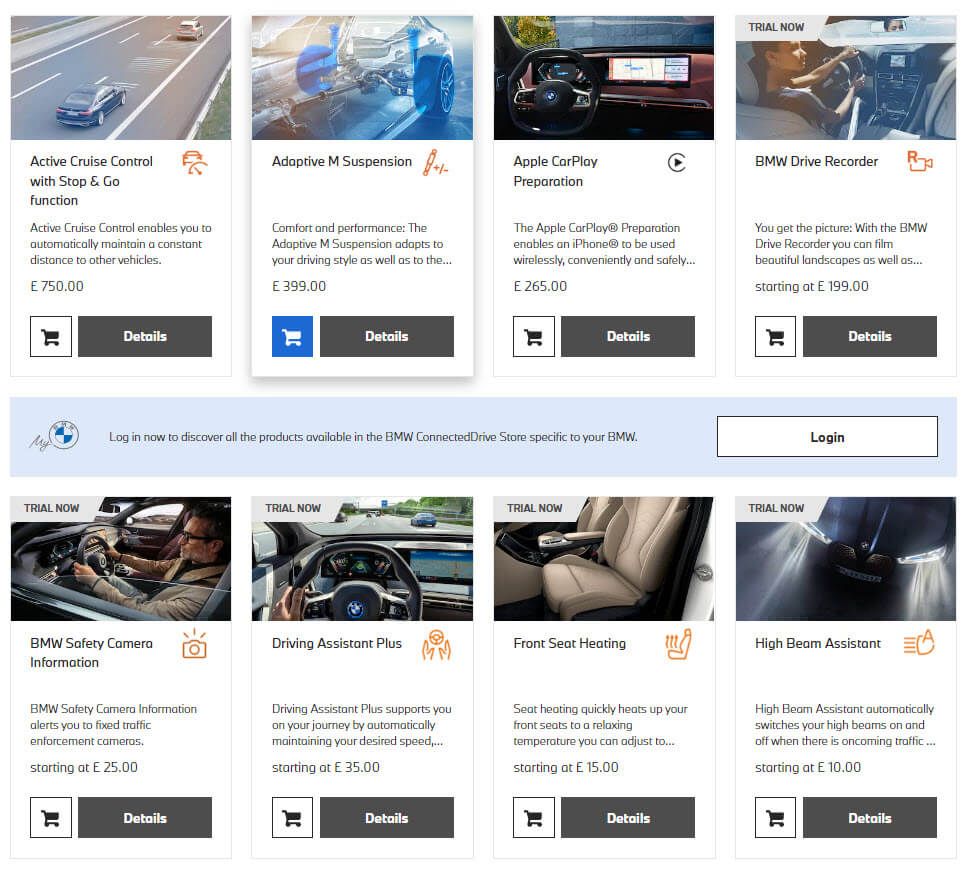“Drive it ‘til the wheels fall off” isn’t the safest decision. So when does it end?

Over a year ago, I wrote a piece on this very media hub about the trend of auto manufacturers offering customers over-the-air (OTA) microtransactions to unlock options on their vehicles. I talked about what Tesla, BMW, VW, and Kia had introduced in that area, and whether customers would see this as a benefit, or would feel as though they were being nickel-and-dimed for things that previously came with the vehicle, like heated seats, drive modes, and built-in dash cams. (I also mentioned then that Ford had hinted at OTA microtransactions and, sure enough, they now have a Blue Cruise subscription, which follows the same model.)
Well, we now have something of an answer. BMW recently announced that they are dropping OTA transactions for features like heated seats or heated steering wheels. (It should be noted that these OTA transactions were being offered in the UK, Germany, New Zealand, and South Africa, but not in the U.S.). Kudos to BMW for recognizing that these types of transactions weren’t going over well with customers and deciding to pull the plug. Instead, they will focus their attention on software, rather than the right to use hardware that’s already built into the vehicle.
“What we find is software-based services, like downloading a parking assist product, is very well accepted,” Pieter Nota, a former BMW board member told Autocar. “People know it’s a certain piece of software they can download that costs money. It’s the same as downloading a film or an extra feature on an app. That is accepted and we do that increasingly successfully.”
Personally, I don’t know if customers are going to see the difference between paying separately for heated seats versus parking assistance, as they are both options that previously came active with a car, but perhaps we’ll see.

BMW’s UK shop, showing available OTA options. Screenshot: BMW / Shop Press.
In my previous piece, I also indicated that customers may have less of a negative reaction to OTA transactions for options, if they recognized that they were paying a lower cost for the car upfront and were being given the option to decide later if they wanted to activate those options, as opposed to the feeling that they were being bled dry. I mentioned that more and better communication from manufacturers is necessary to inform customers and potentially improve their perception of OTA microtransactions. It seems like this is indeed the case, as Nota is quoted in the story as saying, “People feel that they paid double—which was actually not true, but perception is reality, I always say. So that was the reason we stopped that.”
From a tech’s perspective, automakers focusing on OTA transactions for software instead of hardware may be beneficial, as it’s just one less thing an automaker can lock down. There are other issues associated with OTA transactions that are ill-defined at this time and will have to be resolved as these types of transaction become more prevalent. For example, how does an independent car dealer confirm that a used car he or she is selling is functional? If a tech jailbreaks an option locked behind an OTA transaction on a customer’s car, can he or she be prosecuted for a crime? What are the legal ramifications of a driver causing property damage or loss of life or limb with a car that has had changeable safety features, like adaptive high beams or adaptive suspension, removed because the driver didn’t want to pay the OTA transaction?
Is this just the beginning of more customer rebellion against OTA transactions? Perhaps not, as Audi just announced that they are actually increasing their OTA transactions based on customer demand. Only time will tell for sure, but the response to OTA transactions seems like a mixed bag so far.
The articles and other content contained on this site may contain links to third party websites. By clicking them, you consent to Dorman’s Website Use Agreement.
Participation in this forum is subject to Dorman’s Website Terms & Conditions. Please read our Comment Policy before commenting.